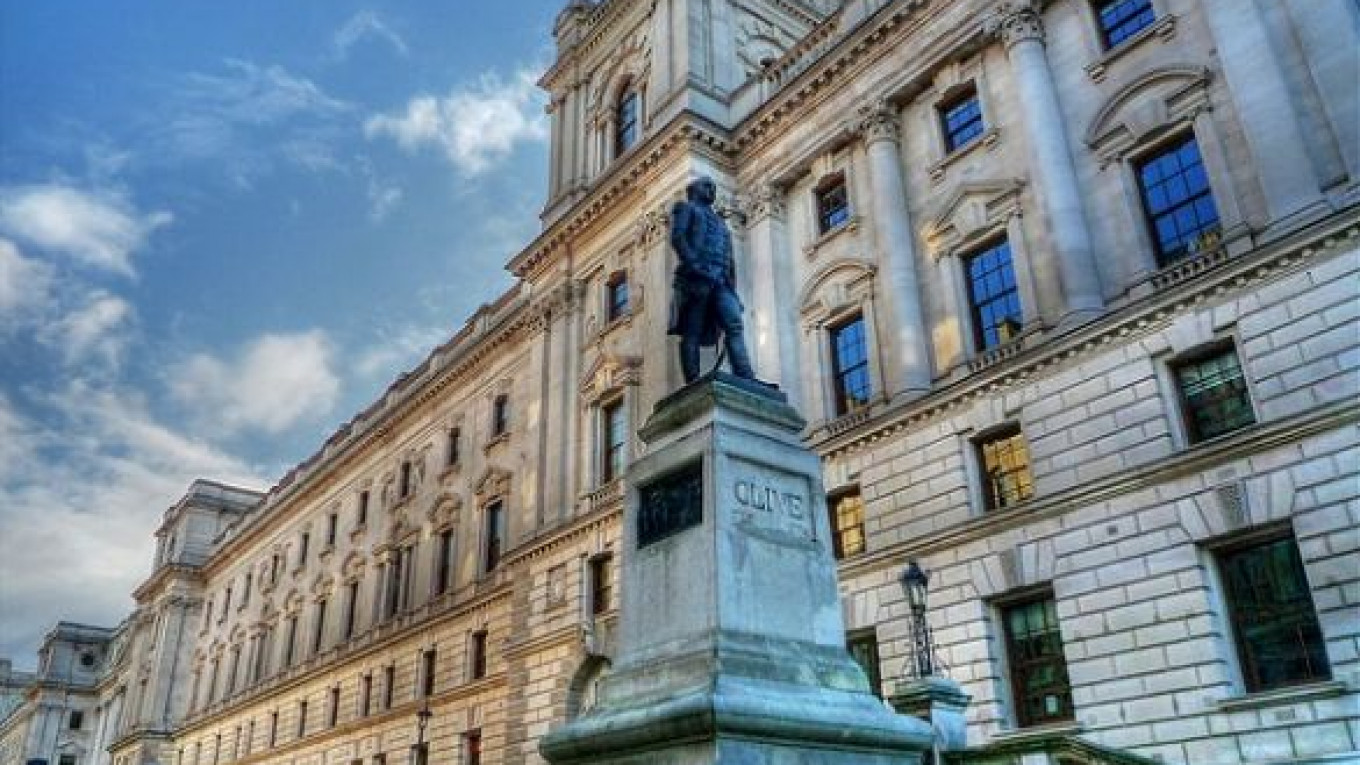British authorities have agreed for the first time in more than a decade to extradite a Russian citizen seeking asylum. The 32-year-old former St. Petersburg resident, accused of beating a man to death, is scheduled to be transferred into Russian custody next week.
Britain has turned down all other requests to extradite Russian asylum seekers, including self-exiled businessmen Yevgeny Chichvarkin and Boris Berezovsky, since President Vladimir Putin took power in 2000.
“This [extradition] case shows that the British authorities considered the accusations brought by Russian authorities to be reasonable,” not politically motivated, said Pavel Chikov, head of the Agora human rights group.
Maxim Vintskevich, who is suspected of participating in the severe beating of a man who later died in a hospital in 2005, was discovered in Britain six years later after being put on an international wanted list, the Prosecutor General’s Office said Thursday in a statement. Vintskevich faces up to 15 years in prison.
Lawyer Oleg Degtyaryov of Law Firm Ltd., which specializes in British legal issues involving Russians, said Britain had honored Russian extradition requests in the 1990s, but the failure to honor more recent ones was due to a deterioration in the quality of cases brought by Russian prosecutors. He ruled out that it was due to a cooling of relations between the countries since Putin came to power.
“The fact that Britain doesn’t extradite Russians has nothing to do with political tensions between the U.K. and Russia,” he said. “It happens because the Prosecutor General’s Office makes absurd and poor cases that have no proof.”
The Prosecutor General’s Office statement Thursday called the extradition approval the fifth “positive decision” from British authorities in response to a Russian extradition request since 2006, when a memorandum on cooperation between the General Prosecutor’s Office and the Attorney General for England and Wales was signed.
But an undisclosed source in the Prosecutor General’s Office told Interfax on Thursday that those other “positive decisions” had not resulted in an actual extradition.
Contact the author at e.kravtsova@imedia.ru
Related articles:
A Message from The Moscow Times:
Dear readers,
We are facing unprecedented challenges. Russia's Prosecutor General's Office has designated The Moscow Times as an "undesirable" organization, criminalizing our work and putting our staff at risk of prosecution. This follows our earlier unjust labeling as a "foreign agent."
These actions are direct attempts to silence independent journalism in Russia. The authorities claim our work "discredits the decisions of the Russian leadership." We see things differently: we strive to provide accurate, unbiased reporting on Russia.
We, the journalists of The Moscow Times, refuse to be silenced. But to continue our work, we need your help.
Your support, no matter how small, makes a world of difference. If you can, please support us monthly starting from just $2. It's quick to set up, and every contribution makes a significant impact.
By supporting The Moscow Times, you're defending open, independent journalism in the face of repression. Thank you for standing with us.
Remind me later.






